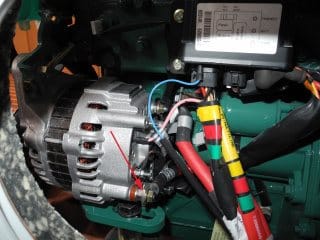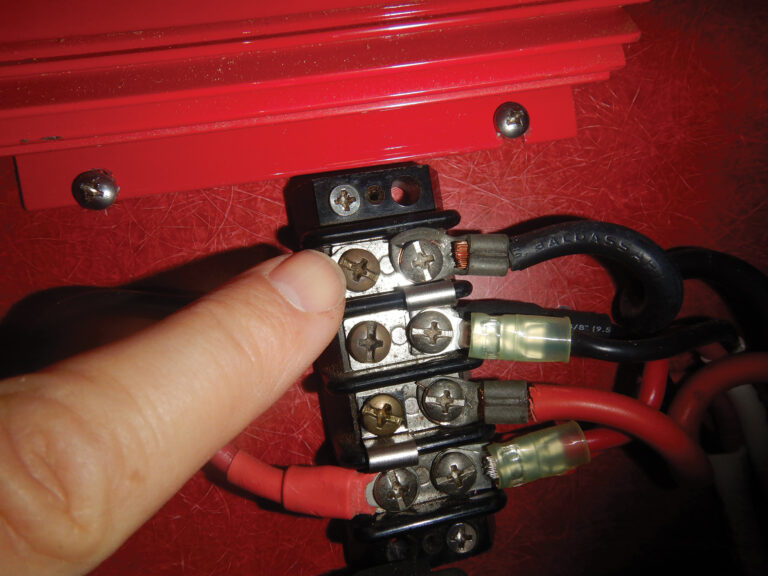
alternator no boot copyboats_8669.jpg
Continuing with our theme the week before last I want to look further at the results from our ABYC Boat Safety Check event last month in Annapolis. As mentioned in my last post on this event the number one item our inspectors found was faulty or non-existent ground fault circuit interrupters (GFCI’s). Next on the list were issues related to over-current protection for both shore power and DC circuits on board. When I’m talking about over-current protection I’m referring to things like fuses and circuit breakers. To refresh everyone’s memory, these are the devices that can prevent an electrical fire on your boat in the event of a short circuit in your electrical system, for any reason. Additionally, protection of termination points in the wiring for circuits that may not actually have a fuse or breaker installed such as starter motor circuits or in some cases alternator circuits is also a requirement under ABYC Standard E-11. The photo below, on a brand new boat illustrates that many folks, including the people actually building boats ignore this basic requirement.

Terminals such as shown on the alternator and all the termination points in any starter motor circuit need to have an insulating cap over them to keep sparks from flying if a metal object comes in contact.
The other all too common point where our inspectors found no protective cover was at positive battery terminals. Just remember that a short circuit at that point in your electrical system could cause the battery to explode. I don’t think I need to explain why that might not be a good thing.







